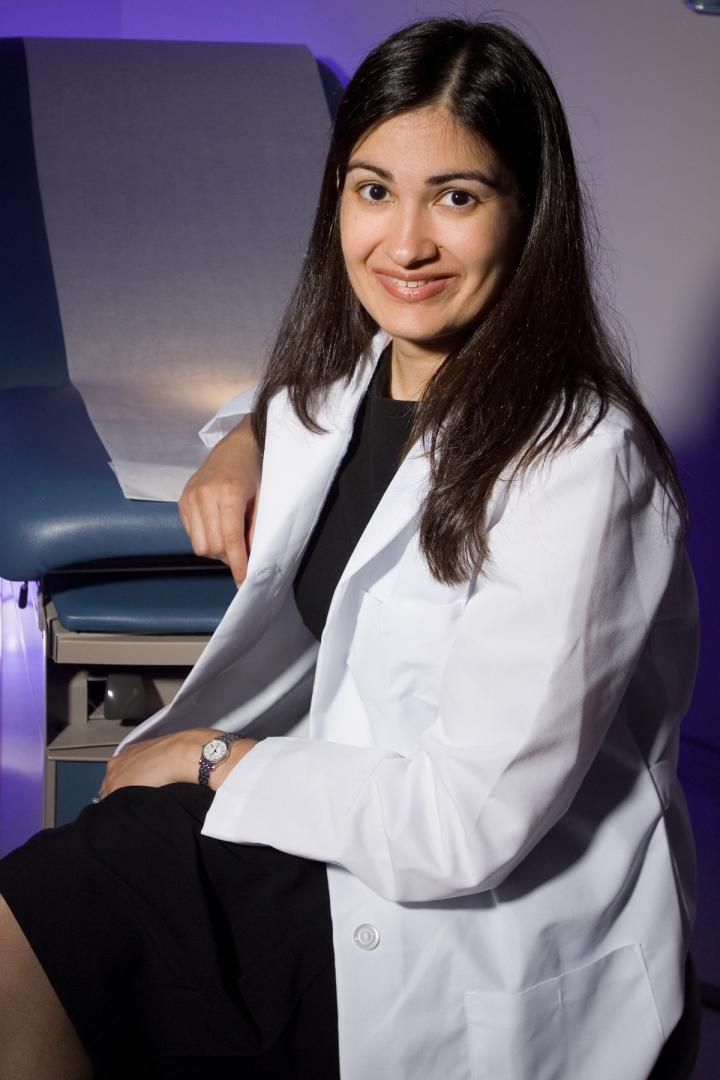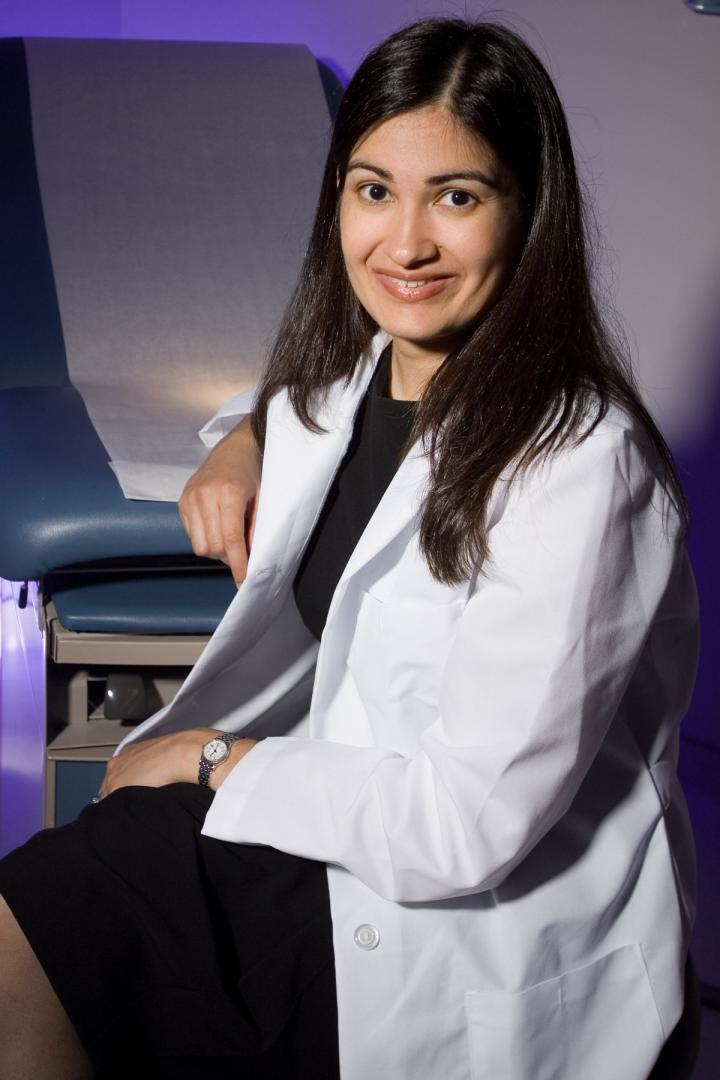
Credit: University of Michigan Health System
ANN ARBOR, Michigan — Many breast cancer patients who have a mastectomy will consider breast reconstruction. But for a portion of these women, radiation therapy is also recommended – and that can alter the tissue around the breast, impacting reconstruction efforts.
A new study finds that women who have implant reconstruction following radiation therapy had more complications from the surgery and were less satisfied with the result than women who had implants but no radiation.
Patients who received radiation followed by autologous reconstruction, in which flaps of the patient's own tissue are used to reconstruct the breast, reported complications and satisfaction similar to women who had this reconstruction but did not get radiation.
"Women diagnosed with early-stage breast cancer face challenging decisions that will impact both their long-term disease control and quality of life. These findings have considerable significance for those who have decided to receive post-mastectomy radiotherapy and must select a type of reconstruction," says study author Reshma Jagsi, M.D., D.Phil., professor and deputy chair of radiation oncology at the University of Michigan Medical School.
The study looked at breast cancer patients from 11 institutions who had received mastectomy and reconstruction; 553 also had radiation and 1,461 did not.
Researchers used a number of measures to assess complications within one and two years of treatment as well as patient-reported satisfaction with their breasts.
After two years, 39 percent of patients receiving radiation and implants had at least one complication, and 26 percent of patients receiving radiation and autologous reconstruction did. Among patients who did not have radiation, 22 percent had complications with implants and 28 percent had complications with autologous reconstruction.
Similarly, patients receiving implants and radiation had significantly lower satisfaction than patients who had implants only, while patients who had autologous reconstruction reported similar satisfaction regardless of radiation treatment. Results will be presented at the San Antonio Breast Cancer Symposium.
"Autologous reconstruction is a much more extensive procedure. But given the findings in this study, it may be preferable for some patients, particularly those worried about the impact of radiation on the outcomes of reconstruction," Jagsi says.
The study was part of the Mastectomy Reconstruction Outcomes Consortium, or MROC, a prospective multicenter study led by Edwin Wilkins, M.D., professor of plastic surgery at the University of Michigan. The study is designed to evaluate breast reconstruction from the patient's point of view, tracking postoperative pain, psychosocial well-being, physical functioning, fatigue and patient satisfaction.
Growing evidence supports the benefits of post-mastectomy radiotherapy in appropriate patients. Reconstruction is associated with increased quality of life and long-term satisfaction. The best approach to integrating these two treatments has not been well-understood.
"It is critical to use these results to generate consensus about the optimal approaches to integrating radiation therapy and breast reconstruction so that women do not receive radically different recommendations based on where they happen to go for treatment," Jagsi says.
###
Funding: National Cancer Institute grant R01 CA152192
Disclosure: None
Reference: San Antonio Breast Cancer Symposium, Dec. 6-10, 2016
Resources:
U-M Cancer AnswerLine, 800-865-1125
U-M Comprehensive Cancer Center, http://www.mcancer.org
Clinical trials at U-M, http://www.mcancer.org/clinicaltrials
Michigan Health Lab, http://www.MichiganHealthLab.org
Media Contact
Nicole Fawcett
[email protected]
734-764-2220
@UMHealthSystem
http://www.med.umich.edu
############
Story Source: Materials provided by Scienmag





